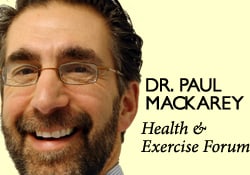 Part 3 of 3
Part 3 of 3
This is the third of three columns dedicated to healthcare for college students Please find the “10 Tips to Keep Yourself Healthy in College” helpful. However, no discussion regarding the health and wellness of college students would be complete and thorough without addressing what health care and university experts consider the two most dangerous behaviors on college campuses across the nation: binge drinking and unprotected sexual activity. While it is not my intent to offend the religious and moral values of any reader, it is my purpose to provoke direct and meaningful conversation between parents, religious leaders and students. To prevent serious health problems in college, parents must share their experience and discuss their values regarding sexual activity and alcohol consumption with children before they leave home to live independently in college. If you are unable to have a direct conversation about these issues, consider doing what several readers have done; mail a copy to your child!
10 Tips to Keep Yourself Healthy in College
(American Academy of Pediatrics)
- Sleep – somehow, despite a busy academic and social schedule, you MUST get enough rest. Lack of sleep may be the single unhealthiest habit of a college student. It can lead to many negative consequences such as lack of concentration, poor emotional stability, and vulnerability to germs and disease. While one may get by on 3-4 hours sleep for short periods of time, eventually, your body will take control and shut down. Do your best to develop a regular sleep pattern and factor in short naps to catch up on needed rest if necessary.
- Diet – the “freshman fifteen” is no joke, it is the real thing. Skipping breakfast, “pigging out” on junk food, late night eating, and drinking high calorie soda and beer all factor into weight gain and poor dietary habits. Make time to eat breakfast, snack on yogurt, fruit and nuts. Fill up on a healthy salad. Avoid a constant diet of fried foods and sweets.
- Water – even adults forget to drink plenty of water throughout the day. Carry a water bottle and skip the soda.
- Get regular check-ups – see your doctor when home on semester break for an annual check-up or more often if needed. Many college health centers offer this service. Many serious problems can be avoided with early detection.
- Get a flu shot – remember, college campuses breed germs and most schools offer inexpensive flu shots.
- Exercise – make time to exercise regularly (30-45 minutes 3-5 days per week). Walk, run, bike, lift weights, play tennis, racquetball or swim. Colleges have the best facilities for sports and exercise. Just DO SOMETHING! It will help you sleep, relax and feel better.
- Relax – make time to relax. Read a book, go for a run, meditate, do yoga, or walk, and have good conversation with a friend. Mental health is important on a stressful college campus.
- Emotional Health – is a vital component of a healthy person. College life can be very stressful. Depression, anxiety, addiction, eating disorders, and homesickness are some examples of emotional problems common among college students. If you feel emotionally unhealthy, get professional help. All colleges have trained counselors equipped to assist you.
- Drink Sensibly – binge drinking might be one of the most dangerous behaviors on a college campus. Studies show 44% of U.S. College students engage in binge drinking uniformly among freshman through seniors. Of these, 50% binged 3-4 times in a two week period. Binge drinking is defined as 5 drinks in a row for men and 4 for women. Binge drinkers are more likely to be victims of poor academic performance, addiction, trauma, auto accidents, assault, unprotected sex, sexual assault, and death. Some of the most common reasons reported for binging are: to get drunk, status, campus culture, peer pressure, academic stress. TALK TO YOUR CHILDREN!
- Safe Sex – promiscuous sex is physically and emotionally unhealthy. Unprotected sex can be LIFE ALTERING! Studies by the Center for Disease Control found that almost 80% of college students 18 to 24 years old had sexual intercourse at least one time during college. 73% reported having unprotected sex and 68% of this group did not believe that they were at risk of contracting a sexually transmitted disease. TALK TO YOUR CHILDREN!
SOURCE: American Academy of Pediatrics
Visit your doctor regularly and listen to your body.
Keep moving, eat healthy foods, and exercise regularly
This article is not intended as a substitute for medical treatment. If you have questions related to your medical condition, please contact your family physician. For further inquires related to this topic email: drpmackarey@msn.com
Paul J. Mackarey PT, DHSc, OCS is a Doctor in Health Sciences specializing in orthopaedic and sports physical therapy. Dr. Mackarey is in private practice and is an affiliated faculty member at the University of Scranton, PT Dept.